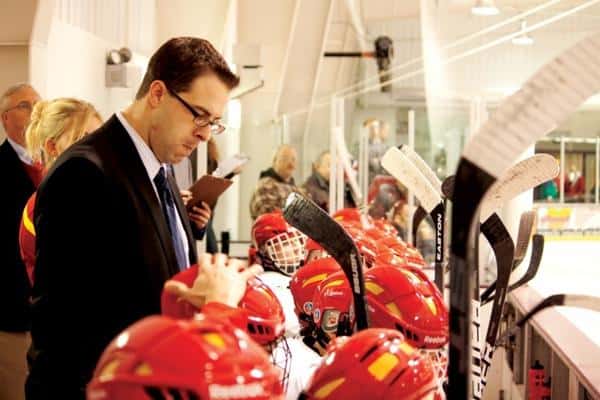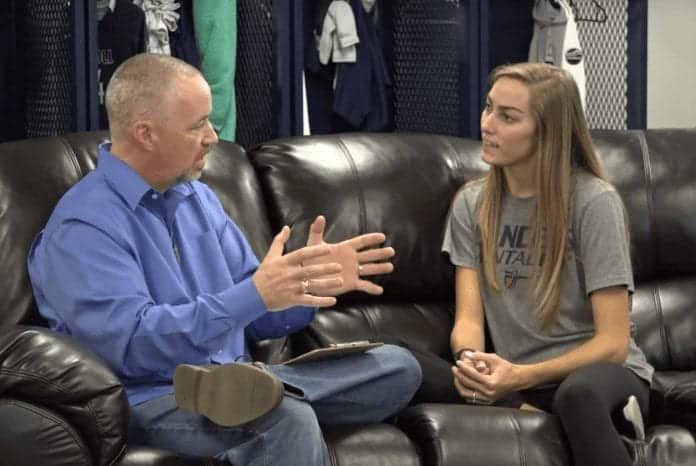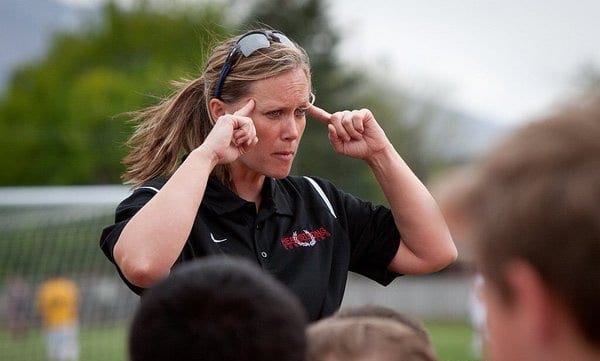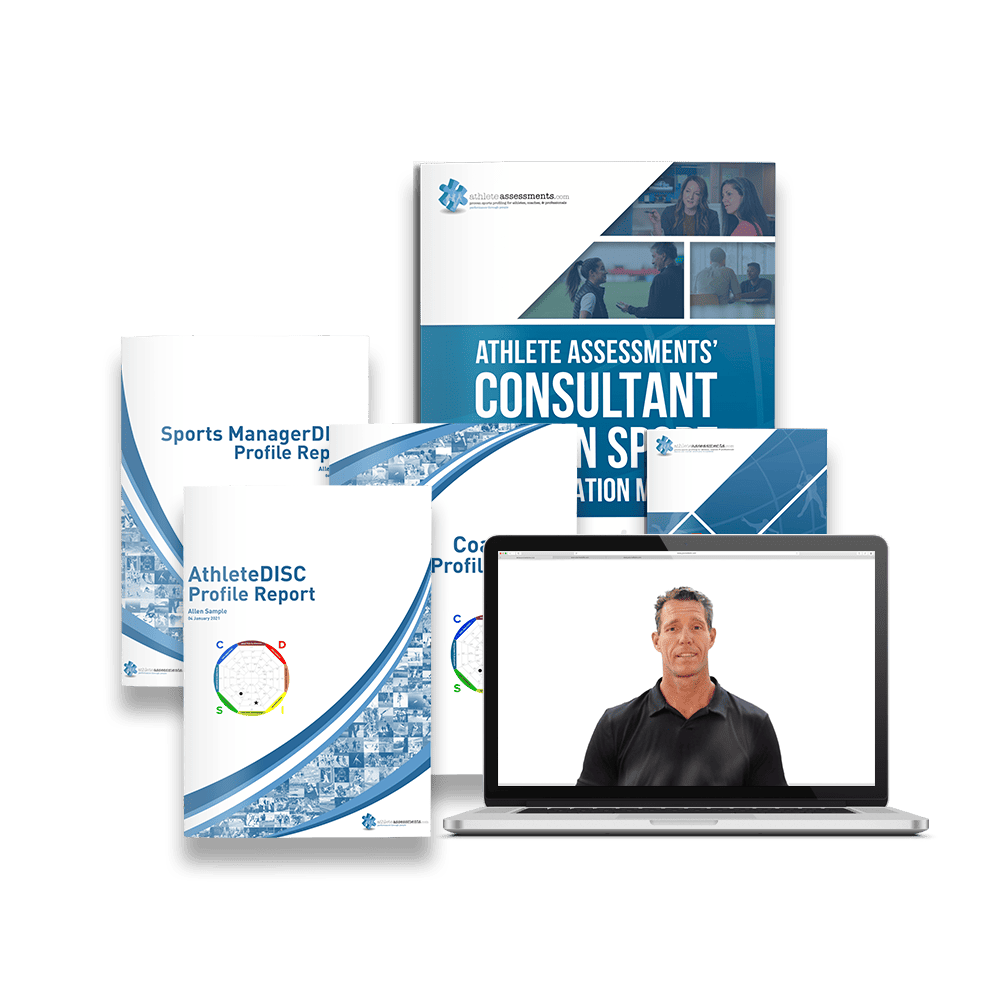What constitutes good character in sport? Is it possible to get ‘ethical’ from being ‘athletic’? Are athletes really special people (heroes and role models) or just people with special skills?
Proponent of Positive Psychology, Sport Psychologist, Sandy Gordon, brings these questions and the debate surrounding ethics in sport to the public forum. In demand across a spectrum of sports, Sandy works with athletes and organizations to ensure they live their values and promote ethical behavior. He declutters the discussion around ethics, guiding his clients to connect with quality values and create situations and relationships which enable ethical behavior. We talk to Sandy about his specialization, take a look at the forces that shape individual behavior in the sports space and importantly ask him what organizations can do to build thriving ethical environments.
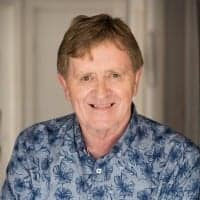
While Sandy says ‘ethics’ and ‘values’ are words that put most people to sleep, the factual, tangible and solutions based discussions he facilitates keep his audiences wide awake.
For example, here’s an excerpt from a recent piece in profile psychology journal InPsych where Sandy describes the qualities of a sporting hero, he says, “in my view sporting heroes (true athletes) first of all should: have character, not be a character; know that winning isn’t everything, but trying to win through fairness is; know that by playing to win you can never lose; never cheat because the minute you cheat, you lose – ‘cheaters’ are never ‘winners’. Second, character involves fair play, which means promoting both the formal rules of all sports and a spirit of cooperation among all players and teams, as well as playing by those rules. Third, character includes sportspersonship, which means giving a full effort in games and training as well as showing respect and concern for officials, coaches, team management, teammates, opponents, as well as to family and oneself. Finally, character includes compassion, which means appreciating other’s feelings, and integrity, which means knowing what the right thing to do is and behaving in line with what is right, even when alternative choices are available.”
When pressed to put a face to these qualities Sandy says, “In 2003 during the semi-final of the ICC Cricket World Cup in Port Elizabeth, South Africa, Australian batsman Adam Gilchrist appeared to survive a dismissal appeal. The on-field umpire ruled he was ‘not-out’ but Gilchrist chose to declare himself out anyway – famously he ‘walked’. In his own words he later said: “the guys back in the viewing room were a bit stunned at what I’d done … While I sat there, thinking about it and being asked about it, I kept going back to the fact that, well, at the end of the day, I had been honest with myself.” Given the context (World Cup semi-final) his actions were incredibly brave. Gilchrist’s book “True Colours” became very popular but his decision that day remains, sadly, controversial. I observed, over 22 years watching First Class cricket, several batsmen and fielders rationalizing their unethical actions with “it’s the umpire’s job” to decide what is right or wrong. My view it’s like observing someone drop their wallet and deciding to return it only when told to do so by someone else! In amateur sport I could list countless members of my golf club who have penalized themselves while out of sight of playing partners (in the bushes, in a bunker etc.), which is character-in-action. But I’m also aware of other golfers who believe that, ‘those with fast buggies never have a bad lie’!”
Cheating usually happens in the shadows, on the sly or in the quiet and talking about it is tantamount to doing it! But Sandy is used to unpacking the issue, he’s examined the questions that surround cheating; asking why it happens, whose responsible and what environments or structures enable cheating. Starting from a critical (sociological) perspective, he explains sport behavior from a rarely considered ideological viewpoint.
Ultimately, Sandy concludes that individuals are only one force in a powerful equation. He considers the money and power of the individuals and organizations who control sport today and the way that impacts the ethical environment that sport’s played in. Sandy says,
“As part of the entertainment industry, sport has been commodified, commercialized and spectacularized. Accordingly, athletes are being exploited and manipulated, and have become victims. In this heady ideological mix athletes are encouraged and even expected to use any means to obtain a win at all costs.”

Considering this pervasive influence on athletes, we asked Sandy how coaches and administrators can ensure their organization are living their values which place an emphasis on ethical behavior rather than leaving their culture to evolve on its own? He replied, “I believe formal and regular ‘value-proofing’ activities would help all organizations live their values the way they claim they want to. Otherwise it’s easy to fall into habits and traps whereby ignoring issues effectively condones unwanted and out-of-character unethical and bad behaviors.”
Giving us some insight into the formative social forces fueling ethical outcomes, Sandy, spoke of the family and community’s role in shaping values. He shares his gratitude for his own upbringing and credits his family and the local community he grew up in with irreversibly setting his moral compass and sparking his interest in pursuing values-based motivation and training and its opposite – cheating, as a specialty.
He says, “when growing up in Scotland my dad and others in my small town community impressed on me at a young age when I was playing football the importance of playing fair and I’m proud of the fact that I was never carded during a short part-time professional career in a tough league. I look at the family situations and influences of female and male players who have ethical behavioral form, and those who do not, and feel sad for the former group who either did not hear my father’s wisdom or chose to ignore it. I’m proud and forever grateful playing the right way ethically was instilled in me early by my parents and the village I grew up in. Looking back, I have no regrets.”
That strong moral compass developed into a professional capacity to guide his clients – organizations and athletes as they explore, understand and develop their own values and behavioral boundaries. Academically and professionally, Sandy started out as a Senior High School Physical Education Teacher at Hazlehead Academy, Aberdeen, Scotland, progressing to Senior Assistant in Physical Education, University of Aberdeen, Scotland. Graduate Assistant, University of Alberta, Canada. Post-Doctoral Student, University of Alberta, Canada. Lecturer, School of Human Movement & Exercise Science, University of Western Australia. Senior Lecturer, School of Sport Science, Exercise & Health, University of Western Australia and the role of Associate Professor, School of Sport Science, Exercise and Health at University of Western Australia until December 2019 when retirement took him into private consulting practice.
He has contributed to coach education programs in over ten different countries and also consulted with the Cricket Boards and national teams of Australia, India, Sri Lanka and Zimbabwe. He has facilitated strategic planning initiatives with Hampshire (England) and Western Australian Cricket Associations and had similar involvement with Australian Football League (AFL and WAFL) teams and the Australian Professional Golfers Association (PGA) is ongoing. He currently consults with the Perth Wildcats and Perth Lynx basketball teams. He has also coached performing artists, and his clients have included opera singers, rock bands, and a contemporary dance company.
Showing his versatility, when we asked Sandy for an example of his work, he gave us one from basketball team the Perth Wildcats to illustrate one of the ways he works with clients. He says, “the 3 point shooting specialist who was struggling for consistency in his last year on contract effectively shifted his focus from outcome/results to process in a week. Very next game he shot 17 pts (95%) in one quarter and unsurprisingly his contract was extended by 2 years!”
Sandy has played a role in many different sports, his techniques and his unyielding belief in people can be applied to any sport or organization, but we asked him what drew him to cricket, a sport he’s been so active in. He said, “while I played cricket and won titles with my hometown team (Huntly) in the Highland League I was a keen but average player. I liked the game a lot so when I first arrived in Australia and the Western Australian coach, Darryl Foster who was a colleague at UWA, asked me to get involved at the Western Australian Cricket Association (WACA) in 1987 I immediately said yes. Players in that very successful team later became national team coaches (Geoff Marsh – Australia and Zimbabwe; Tom Moody – Sri Lanka) and regarded me well enough to trust my work. The coach of India (John Wright) also knew me from cricket coaching conferences. So, my involvement in cricket was more a combination of opportunity and familiarity with key people than personal ambition.”
Sandy isn’t only active in the sport space, in business settings both overseas and in Australia Sandy’s engagements have included facilitation of emotional intelligence, mental toughness and resilience programs (Banks, Business Consulting Groups, Call Centers), creating high-performance leadership cultures (Banks, Real Estate firms), high-performance team work (Mining firms, Call Centers), decision-making skills (energy firm) and strategic planning (small businesses). Executive Coaching experience includes CEO/CFO level individuals in both public (ABC, ATO, DoIR, DSR) and private sectors (Accountants, Banks, Builders, Financiers, Lawyers).
Underpinning his work in any sector is growth. Specifically, he says, “my six-word purpose motive i.e., why I do what I do, is ‘personal growth, performance enhancement, in sport’. So, when individuals and teams I work with achieve in both those areas I feel both excited and fulfilled. In professional sport ‘personal growth’ of athletes often gets lost on administrators, coaches and the athletes themselves in the never-ending pursuit of winning. My own research on career transitions in sport has been very helpful in this space.”
This emphasis on growth coupled with Sandy’s evidenced-based positive psychology approach to both team and individual is popular and ‘makes sense’. Clients report that he follows up on all issues that he discusses with them – even if only briefly. He confided that his secret was keeping detailed notes of sessions. Observations and feedback from clients reveal that he’s ethical, professional and blends-in easily.
Knowing that coaches often seek assistance with mental skills from sport psychologists we asked Sandy what is most misunderstood about mental skills development and the work he does with athletes and coaches. He says, “there are a few misunderstandings about mental skill development still.”
- First, mental skills training should be integrated within coaching plans, not add ons.
- Second, the coach is the best person for this job as long as she/he can model the skills being taught.
- Third, a developmental approach should be followed i.e., introduce simple skills before more complex skills.
- Fourth, the objective is always to make athletes self-sufficient and individualized programs are required as early as possible before team programs.
- Fifth, mental skills programs should be periodized just like physiological programs.
- Finally, problems with adherence are to be expected just like learning technical and physical skills.
And, while we’re on the subject of mental skills, Sandy has this piece of advice for athletes and coaches,
“First of all understand yourself by completing an Athlete Assessments’ DISC Profile. The first step in any personal development journey is self-awareness followed by self-monitoring then self-regulation. Knowing and owning your default behavioral and communication style preferences, and your strengths and weaknesses is critical. Being authentic is about becoming more and more of yourself – because everyone else is taken – with skill.”
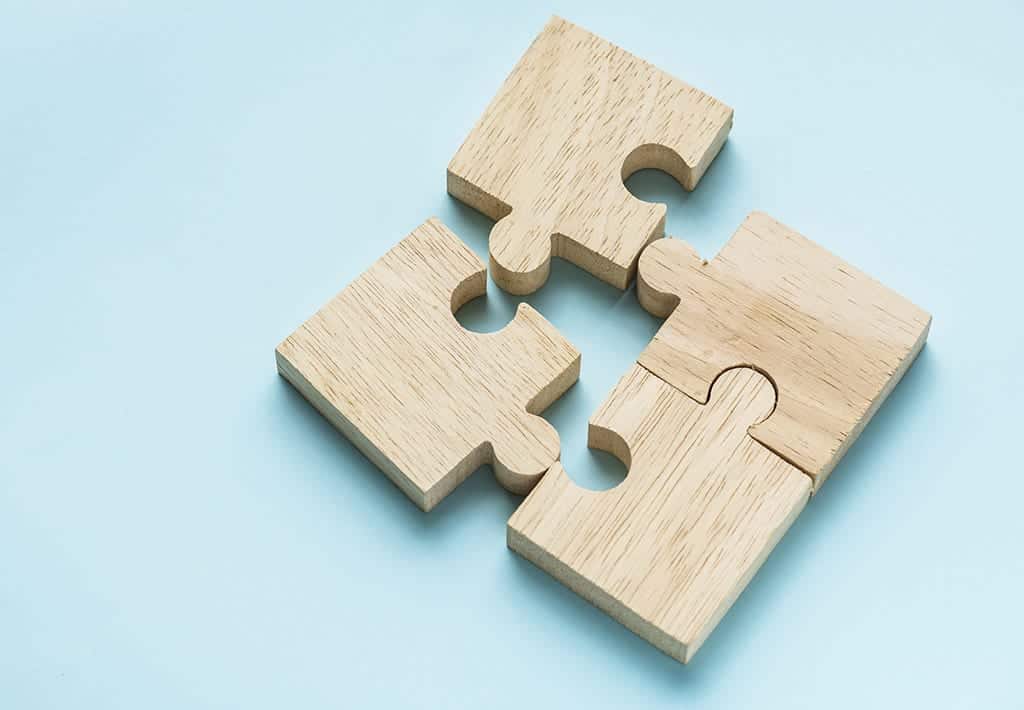
Sandy elaborated about the process of working with Athlete Assessments and using their DISC Assessments with his clients – what benefits the assessment delivers. “First, Athlete Assessments folks have been excellent and reliable responders to my several last minute requests for super quick turn-a-rounds! Second, both team and individual reports are appreciated by my clients who find them easy to read and use. For example, a professional soccer team, including coaching and support staff as well as players, were excited with potential improvements in communication club-wide. A cricket club with four grades of players and coaches better understood how to adapt to each other in pursuit of their value/mission statements. Individuals – athletes, coaches, officials, administrators – have reported knowing themselves better. Third, as a ‘conversation starter’, I choose DISC ahead of any other profiling tool because there are no good and bad profiles and my work is not about improving a profile. I can’t say that about most other tools I am accredited in using.”
His advice for someone starting out in their career as a sport psychologist, “avoid doing anything for anyone, anywhere. Carefully choose an activity or performance environment and culture that you personally like and leaders (captains, coaches, administrators) that you respect, and stick with it. You will then love ‘going to work’ feeling that your contributions are supported and valued.”
As for what the new decade brings, Sandy explained that his recent retirement from the University of Western Australia brings a fresh and exciting round of challenges as he pursues his private practice.
Where to from here?
Are you a Sport Psychologist looking to achieve similar results with your clients? You too can take your consultancy to the next level and achieve the success that Sandy Gordon has.
As a top consultant, your clients rely on you being the best in your field, knowing the true determinants of success and having access to the tools that will make the most impact when it comes to improving performance. Athlete Assessments’ DISC Profiling is the tool you need to help your clients realize their potential.
Find out more about Athlete Assessments’ Consultant Program now.
At Athlete Assessments we’re here to provide you with excellence in service and to help you be your best. If there is anything we can do to contribute to your success, please contact us.
Recommended Articles
Leadership is not a role it’s an attitude; a state of mind, a way of behaving that inspires people around you to follow, hold similar beliefs, live similar values and work towards common goals.
Why would you leave a gap in your game preparation, asks Kyle McDonald, Mental Performance Consultant. He questions why some athletes and coaches have a plan for physical and technical development, but not for mental growth and mastery. Kyle prepares some of Canada’s best and most competitive ice hockey athletes and teams for their professional, Olympic and Paralympic campaigns. In this article he reveals the impact of stress and pressure resilience on performance and underscores it as the #1 differentiator between elite athletes. He details the essential precursor to mental skills acquisition, the link between hardiness and high-performance and the ideal age to start mental skills training.
Sport Psychologist and Mental Performance Coach, Dr. Ed Garrett or Dr. G. as he’s known, explains the link between the coaching connection and behavioral types. His simple explanations and situation-specific examples make the process easy to understand and his suggested solutions will have an immediate impact on your coaching.
Mental Performance Coach, Dr Nicole Detling, is distinguished by her ability to cultivate exceptional progress in her athletes. Professionally, she was a fundamental part of Team USA’s incredibly successful campaigns at the 2010 Vancouver Olympics, 2014 Sochi Olympics and the 2018 Olympics in PyeongChang. She worked with the US Speed Skating and Freestyle Aerial Ski Teams as well as the Snowboarding team for PyeongChang. Over 2 decades she’s developed a unique insight into the pressures associated with Olympic performance, how to work through them and lay the foundations for success.



